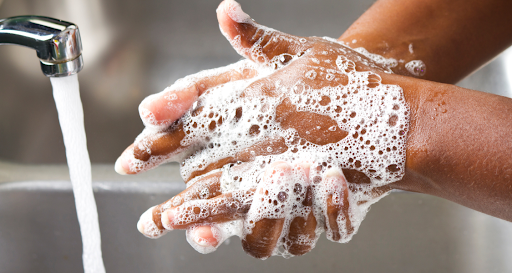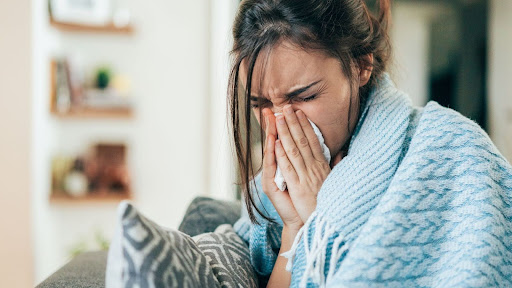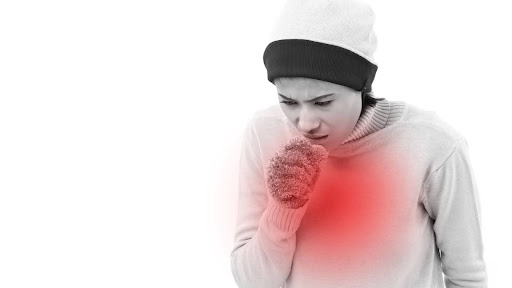Protect Yourself From Dengue, Fevers During Monsoon
5 min read
By DocGenie , Published on - 02 November 2022Written by Dr. Rachna Kucheria (MBBS MAMC New Delhi, MDAIIMS New Delhi, MD (Family Medicine) USC California), one of the best general physicians in Delhi NCR.
This past Sunday, my husband and I prepared for a walk in the local park by wearing a three-layer mask (link to Blog on masks), loose cotton clothing to cover as much of the body as possible, spraying mosquito repellant on exposed skin, and filling water in our reusable steel bottles. With these simple and potent steps, we were able to prepare ourselves for three of the most common infections of the monsoon season – Coronavirus, mosquito-spread fevers, and water-borne diseases.
Knowing well, that this monsoon, like others, most people seek advice for -fever. And in such a volatile and virus-ridden environment, COVID-19, Dengue, Malaria, Scrub typhus, gastroenteritis, and others, could all be the cause of a fever. Although each of these diagnoses has its own unique features, the only way to be certain is by getting yourself tested and looked at by a doctor.
In this blog, I will discuss salient features of two causes of fever and provide general advice to avoid falling sick this post monsoon season.
Dengue Fever and Malaria - What You Need to Know
Dengue Fever, also known as “break-bone fever”, is a disease caused by the dengue virus transmitted by the Aedes mosquito when it bites an infected human and then an uninfected human. Fever usually develops 4-7 days after this.
This mosquito breeds in collections of water around the house, for example plant pots, coolers, stagnant drains, and puddles of water. Therefore, one of the ways to stop this disease from transmitting is by ensuring that no breeding places or collected water exist around your home and work environments.
The most common symptoms of Dengue fever are:
- Fever - usually 101 F or higher
- Headache - typically behind the eyes or centre of the forehead
- Pain in bones and or pain in joints
- Rash - this usually develops on the 4th or 5th day of fever and indicates a recovery from the disease
- On lab tests the white blood cell count is usually low and platelet count maybe normal or low
Most people with dengue recover in 7 days from the fever and rash. However, some people develop a severe version of the illness may develop with some of the following symptoms:
- Pain or tenderness in the abdomen
- Persistent vomiting
- Bleeding from gums, or red / orange urine
- Feeling very restless or extremely fatigued
- Decreased platelet count (and other lab and radiology parameters)
And in a small percentage of cases this may progress to unconsciousness, organ failure and death.
As I write this blog there are reports of cases of Dengue occurring with COVID 19. This can be confusing for both the patient and doctor as symptoms as well as certain lab parameters are similar in both. The only way to know is for the doctor to keep this in mind and order both tests.
Malaria
Malaria is caused by the protozoan parasite Plasmodium.
Most common species being P. vivax (P Falciparum in certain areas of the country).
The malaria parasite is transmitted by female Anopheles mosquitoes, which bite mainly between dusk and dawn ( Ref : UpToDate Evidence Based Clinical Support).
Symptoms of malaria usually begin after 7-10 days since the bite and include:
- High fever (more than 101 F), usually with chills and sweating
- Headache
- Nausea and vomiting
- Body ache
The P. Falciparum type of malaria usually is responsible for the more severe forms of Malaria. Patients may have some or all of these problems- fever, chills, headache, muscle ache, weakness, vomiting, cough, diarrhoea and abdominal pain.
Prevention and Treatment of Fever During the Monsoon
1. Cover your exposed skin with with loose cotton clothing and mosquito repellants to prevent bites (by mites or mosquitoes).
2. Carry your own clean water and avoid uncooked food from street vendors. It may be best to stay away from unhygienic street food entirely while the pandemic rages on.
3. Online Consult with a General physician in Delhi early after a fever starts in order to establish the diagnosis and start the correct treatment.
4. Wear a mask every time you’re outside and interacting with people and maintain a safe distance from them.
5. Wash and/or sanitise your hands thoroughly and frequently.
The monsoon season is tricky to navigate every year, and this year the presence of Covid-19 is creating an added layer of complexity and seriousness. Although all of these precautionary steps may feel tedious and painstaking, when placed into a larger perspective, they will go a long way in ensuring our secure movement over the long term. Please go the extra mile for your health this monsoon season and stay safe.
Also read: Protect Yourself from Covid
About the Author
Dr. Rachna Kucheriais one of the best general physicians in Delhi NCR. She is a US-trained Physician (Family Practice) on the lines of the old-fashioned ‘Family Doctor’ we grew up with and hope to find again. Her emphasis on early, accurate diagnosis; appropriate (few) medicines; and clear patient communication, sets her apart as one of the most trusted physicians in Delhi. She is licensed to practice medicine both in India & California. Her 27 years of experience includes practicing in the hospital, clinic and (patient) home setting, and for the last 4 years, telemedicine.
DocGenieis anonline telemedicine platformthat provides you with quality healthcare from the Consult with doctors online in India in the comfort of your own space. On DocGenie, you will find a select few, highly-qualified doctors, unlike other online platforms with thousands of doctors. So you can be assured of receiving excellent, honest, personalized care from the best professionals.



